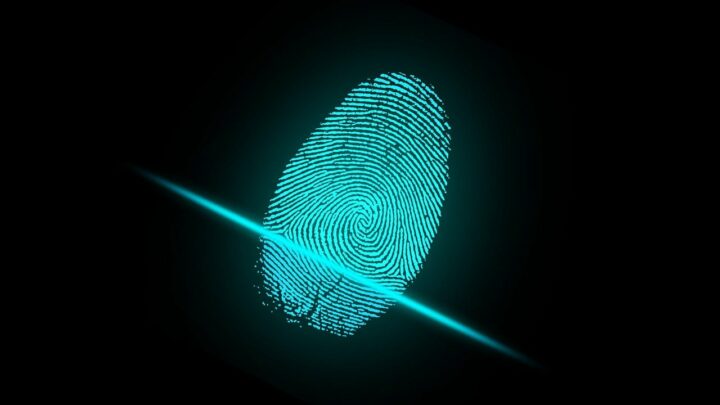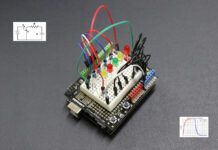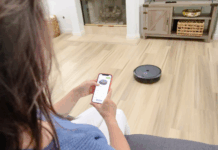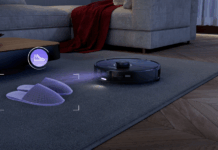 Today, biometric technologies surround us, especially in the central business districts. You can find applications of biometrics in smartphones, smart homes, schools, hotels, workplaces, and more. In the US, 75% of consumers have encountered at least one type of biometric technology.
Today, biometric technologies surround us, especially in the central business districts. You can find applications of biometrics in smartphones, smart homes, schools, hotels, workplaces, and more. In the US, 75% of consumers have encountered at least one type of biometric technology.
You might be using it every day and not notice it. Yet, have you paused and thought about why biometric technologies are so widespread? Today, we’ll address that question and discuss the benefits of biometric technologies.
What Is Biometric Technology and How Does It Work?
Biometric technologies refer to the use of technology to identify a person based on their biological aspects. The most common physiological features biometric technology measures include:
- Fingerprints
- Face
- Hand geometry
- Iris
- Retina
- Vein
- Voice
- Gait
Biometric technology uses devices or machines that can measure these features. Fingerprint scanners and face recognition software are the most common type of devices. Retinal scanners are also commonplace in many high-end establishments and organizations.
Biometric technologies use a system that records people’s biometrics. The biometric data gets matched to the person’s data and gets added to the database. From there, the devices could do various things, like keep logs, authorize access, and more. Keep reading for the applications of biometric technology and why they matter.
The Massive Impact of Biometrics on Security
Do you often think about security when you hear or come across the word “biometrics?” One possible reason behind it is that biometrics and security are closely associated. For example, on your smartphone, you use your fingerprint instead of typing a password.
In casinos, facial recognition devices identify banned individuals before they can enter the premises. In modern apartments, smart locks use face recognition to allow only the homeowner entry. Law enforcement uses face search in biometric technology to hunt down wanted offenders.
This protection also applies to data. Biometric authentication can keep unauthorized people from accessing top-secret information. From these examples alone, you can see that biometric technology offers security and protection.
Everyone’s Biometric Data Is Unique and Non-Transferable
Another factor that makes biometrics secure is that everyone is unique. If a system already recorded your fingerprints in its database, there’s a very slim chance for other people to use them, too. The same is true with your vein formation, irises, and retina.
Compare this to using passwords that can get hacked, shared, and changed. Yet, not every piece of biometric technology can capture every nuance of your unique biometric data. For example, a biometric device may confuse someone else with you if they have a similar voice or face.
Also, nobody else can use your biometric authentication for you. After all, your body is the key to the data or areas that biometric technologies are protecting. Forget about the spy movies wherein they could use fingerprint lifts to access unauthorized files. Modern technology is smarter than what Hollywood gives it credit.
Biometric Technologies Provide Convenience
As with other goals of technology, biometrics offers convenience. With biometrics devices, you don’t need to remember passwords, PINs, and codes anymore. Putting the tip of your finger against a scanner is more manageable than remembering a password.
Considering the current password requirements are, you’d need one that is complex, long, and changed often. If you’re the forgetful type, you’ve got a big chance of locking yourself out of your accounts. Writing down a password also has risks, like when someone comes across the paper you wrote it on. With biometrics, you can finally say goodbye to locking yourself out of your accounts.
It’ll also take you less time to use a biometric scanner than to type in a password. Scanning your fingerprint can take as quick as a half-second to unlock your phone, for example. It’s most useful in emergencies when time is of the essence.
High Levels of Accuracy
Many of the biometric technologies we use today have high individual identification accuracy. Considering this technology depends on the unique physical traits of every person, it’s a decisive advantage. However, keep in mind that this accuracy also depends on the biometric device you’re using and its reliability.
Affordability in Many Cases
Biometric technology isn’t too advanced that it’s inaccessible to average consumers or small businesses. Biometric technology is more affordable now compared to a few decades ago. Some biometric devices are more expensive than others. For example, fingerprint scanners are more accessible than iris scanners.
In the same vein, you could also spend more on biometric technology if you want to. Like safes and other security systems, more expensive biometric devices tend to be more secure. These high-end pieces of biometric technology best suit schools, law enforcement offices, and businesses that handle sensitive data.
Conclusion
There’s no doubt that biometric technology will continue to advance and provide more benefits. Until then, enjoy what we can get out of what it holds for us. And now that you understand the pros of biometrics, you can have a better understanding of how it compares to other forms of technology.

















